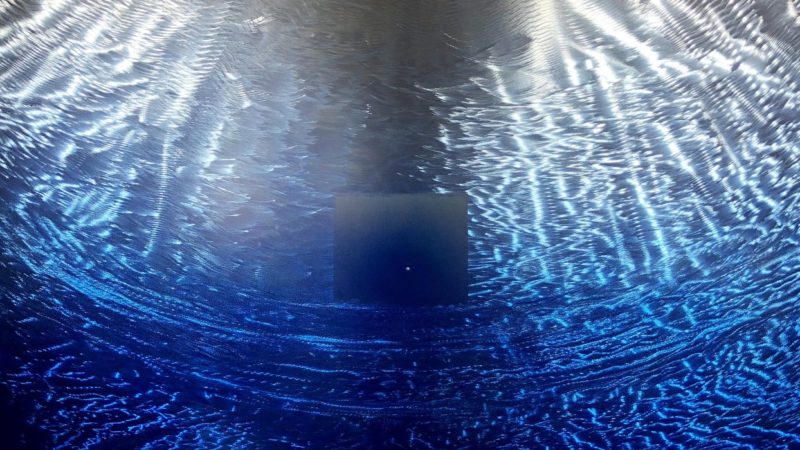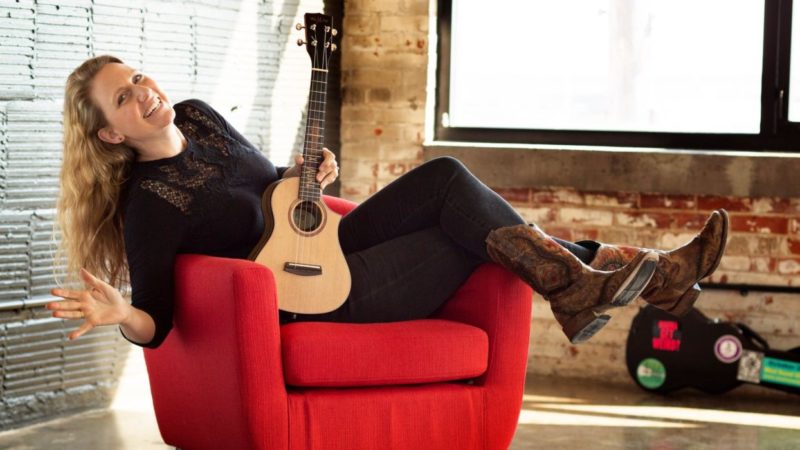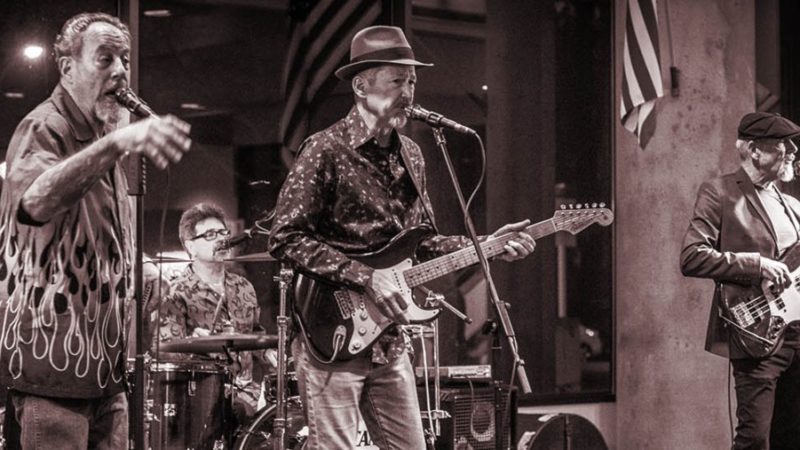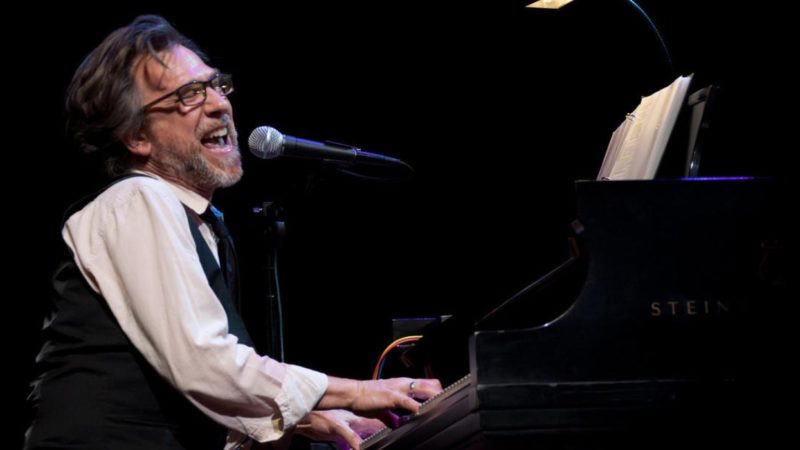Andreas Nottebohm
Andreas Nottebohm
Andreas Nottebohm, born on October 13, 1944, in Eisenach, Germany, is a German-American artist and pioneer known for his groundbreaking work in metal painting. His career is defined by an innovative approach that combines polished metal surfaces, light, and color to create artworks that challenge traditional perceptions of depth and space. Nottebohm’s artistic journey began at the Academy of Fine Arts in Munich, where he studied under the surrealist painter Mac Zimmermann. He then deepened his knowledge of etching with Johnny Friedlaender in Paris and studied lithography in Salzburg, Austria. During this time, he began using metal as a medium and discovered the unique reflective and transformative properties of the material.
In 1978, Nottebohm held his first exhibition in the United States, where his work was highly praised by critics. This led him to settle in the San Francisco Bay Area, which remains his creative home to this day. A significant milestone in his career occurred in 1981 when NASA commissioned him to create official paintings for the first Space Shuttle mission of the Columbia. This collaboration established him as a visionary artist, seamlessly blending themes of science, technology, and the cosmos with his unique artistic techniques. Nottebohm is particularly renowned for using polished aluminum and other metals as his canvases. His process involves polishing, etching, and painting metal surfaces to create dynamic works that interact with light and change depending on the viewer’s perspective. His art evokes a sense of cosmic wonder and is often compared to the Op Art and visionary art movements.
Nottebohm’s works are featured in prestigious institutions worldwide, including the Smithsonian National Air and Space Museum, the Kennedy Space Center, the Crocker Art Museum, the Nevada Museum of Art, and the Museu de Arte Moderna in Rio de Janeiro. Over the course of his career, he has presented more than 100 solo exhibitions across Europe and the United States. In 2011, the University of Arizona honored him with a major retrospective that highlighted his innovative contributions to contemporary art. In recent years, he has collaborated with musician Pete Sears on a decade-long project that combines his metal artworks with experimental music, expanding the sensory dimensions of his art.
Nottebohm’s ability to transform metal into dynamic, light-reactive artworks has redefined the possibilities of this medium. His works bridge the gap between art and science, inspiring viewers to explore the interplay of light, space, and imagination. With a career spanning decades, Andreas Nottebohm has established himself as a true visionary, leaving a lasting impact on the art world.
He has had over 150 one-man shows. His paintings have been shown in galleries and museums worldwide, including the Smithsonian Museum and the Crocker Museum in Sacramento, Ca. Over the years the value of his artwork in one-of-a-kind original format has steadily increased. Crocker Museum curator observed that Nottebohm “teases the eye and challenges the mind.”
Active galleries: Laura Rathe Fine Art Modernism
Museum Show – University of Arizona
Visit website for Limited Edition Prints on Metal and Silkscreens on museum quality paper.
Follow him on Instagram
Click on “Visit Site” button below for full biography, portfolio, and additional video.

Danny O’Keefe
Danny O’Keefe
In the 1970’s, Danny O’Keefe put out a string of albums that cemented his reputation as being among the best songwriters of his generation. These days, casual fans know him best for his Top Ten hit “Good Time Charlie’s Got The Blues” or Jackson Browne’s version of “The Road” from the classic Running On Empty album. But the story didn’t end in the 70’s. He recorded “The Day To Day” in 1985 with the two Top Twenty Adult Contemporary songs “Along For The Ride” and “Someday”. Working with Bob Dylan’s company, Special Rider Music, he co-wrote “Well, Well, Well” with Bob and other songs successfully recorded by artists like Nickel Creek, Alison Krauss, and Alan Jackson.

Victoria Vox
Victoria Vox
Victoria has taken the artful sound of the ukulele into eclectic new directions. Her music ranges from upbeat and clever to honest and moving, while incorporating her signature “mouth trumpet” and occasionally singing in French. Her delightful songwriting uses a unique palette of sounds and beats that delight audiences of all ages.
For a taste of Victoria combining Mouth Trumpet and Ukulele check out this Video
Check out Jack & the Vox. Another dimension when Victoria and her husband hit the road.
2020 diversions – see facebook posts for over 100 mini-sets which kept us company during the pandemic.

The Nighthawks
What sustains a band for more than three decades? Not a hit radio band, but a roll-up-your-sleeves/drive to the next gig overnight/carry your own gear up the steps and night after night make people happy kind of band. One that makes them dance; sends them home to come back again—and again. What makes that kind band stay together through relatively few personnel changes? Answer: A good idea; a universal yet somehow unique, good idea.
The Nighthawks sought not so much to reinvent rock and roll, but simply to have it reinvent itself by taking the original ingredients and following—if somewhat loosely—the original recipe. And like good cooks, the individual personalities involved ultimately affected the outcome.
The band was over 10 years old and had baffled the mainstream industry before the term “roots rock” was coined to explain the likes of West Coasters like Los Lobos and The Blasters. By then, the affiliation with many of the living blues greats seemed to brand The Nighthawks a “blues band” despite the fact that they played with Carl Perkins as well as Muddy Waters.
The Nighthawks had its genesis when lead singer-harmonica player extraordinaire Mark Wenner returned to his native Washington, D.C. after six years in New York City, lured back by the success of his friend Bobby Radcliff’s local acclaim with a blues band. Mark joined forces with a then very young Jimmy Thackery and formed The Nighthawks in 1972. They spent a couple of years building The Nighthawks’ reputation with a revolving cast of characters until, in 1974, they decided to get the best rhythm section the area had to offer: Jan Zukowski on bass and Pete Ragusa on drums.
The Nighthawks set off on a musical mystery tour that took them to 49 states and a dozen countries. They played with nearly all the living blues legends as well as a new generation of bands, sometimes called “the Blue Wave”, and released several important albums including the best-selling Jacks and Kingswith Pinetop Perkins, Luther “Guitar Junior” Johnson, Calvin Jones and Bob Margolin. (Servern Records 2017)
Could not resist the throwback video..enjoy

Tedeschi Trucks Band
Go back to December 31, 2008 when guitarist Derek Trucks and his wife, singer/guitarist Susan Tedeschi, were preparing to ring in the New Year. Married since 1999, these two soulmates, equally steeped in the musical roots of blues, jazz, and gospel, had finally decided the time was right to set aside their successful solo careers and commit to a new band melding their vision and talent. It wasn’t the first time they had collaborated; they had shared a stage countless times and traded album guest appearances, all while starting a family together. But on that night, hitting the stage together with members of the Derek Trucks Band and a guest horn section they heard the future.
“The 12-piece outfit puts out a big band sound that still rings intimate, shaking listeners to their emotional core.” – Rolling Stone
Two years later, the couple debuted Tedeschi Trucks Band. The nation’s economy was heading into recession. The popular music landscape was filled with technological theatrics and auto-tuned singers. And here were Tedeschi and Trucks along with their (then) 8-member band, loading up two tour buses and hitting the road with a sound that defied conventional genre boundaries or traditional labels; a gypsy caravan on the rock-and-roll highway. To call it ambitious was an understatement.
During their five-year rise, the group toured incessantly, raising their profile and being handpicked to play with the likes of Eric Clapton, Bob Dylan, and Santana
In pursuit of their ideal sound driven by world class musicianship, Tedeschi and Trucks put together a musical collaborative like no other, flying in the face of any practical or economic considerations. There have been evolutionary changes to the band along the way, but the freight-train force of veteran drummers J.J. Johnson and Tyler Greenwell were there from the start, along with two brilliant Trucks Band veterans to amplify the rhythm section: Kofi Burbridge with his prodigious talent on keys and flute, and Mike Mattison, with his dynamic vocals and songwriting skills. A 3-piece horn section brought on for studio work proved indispensable to the group’s sound and became a permanent addition – now composed of Kebbi Williams’ intergalactic saxophone, Ephraim Owens on trumpet and Elizabeth Lea on trombone. Industry-renowned bassist Tim Lefebvre (David Bowie, Elvis Costello, Sting) joined in 2013, and two years later a third incredible voice, Alecia Chakour, was added to the background vocals provided by Mark Rivers and Mattison; each more than capable of delivering a stirring turn as a lead vocalist.
On the road for upwards of 200 days a year, the TTB family has grown strong, bonding over backyard BBQs and long bus rides, all the while developing a growing repertoire of original material and paying homage to an extensive canon of influences ranging from Sly & the Family Stone, Miles Davis and George Jones to Joe Cocker, Nina Simone, and even Indian sarod master Ali Akbar Khan. Embracing improvisation over convention, and set lists rarely repeated, the collective is adept at exploring almost any musical territory. The genuine respect within its ranks is evident on stage. Trucks’ masterful guitar skills and Tedeschi’s soaring vocals and bluesy guitar shine but don’t overpower the breadth of talent, happily yielding the spotlight as needed in service of what the song deserves.
“I saw them live and it was mind blowing. [Derek] has taken the guitar, specifically slide guitar, somewhere it has never been. His phrasing both with and without slide is uniquely his and just odd and jarring and exciting to listen to. [Susan] is an earnest blues player as well and her voice is astounding. The band was mind-blowing. They take a form that is arguably tired and turn it inside out with originality and musicianship and make it totally their own.” – Marc Maron
Trucks and Tedeschi’s uncompromising vision has paid off. Now 12-members strong, and with a catalog of five albums and nearly a decade of steady touring in the U.S. and abroad, Tedeschi Trucks Band carries a distinguished reputation earned from both audiences and critics as one of the premier live bands in the world. Sold-out multi-night runs at venerable venues like the Beacon Theatre, Ryman Auditorium and Red Rocks Amphitheater are a testament to the can’t-miss concert experience fans have come to anticipate. The band’s own “Wheels of Soul” tour has become a sought-after summer experience from promoters across the country, bringing TTB’s unique stew of upbeat rock and soul together on stage with a slew of guests, sit ins, and supporting bands that have included the late Sharon Jones, Los Lobos and most recently The Wood Brothers and Hot Tuna. 2018 will also mark the sixth year for the TTB-curated Sunshine Music Festival, hosted each January in their home state of Florida.
“Epic is an overused word, but if one contemporary rock band were to rightfully wear it, the Tedeschi Trucks Band might be the ones.” – Santa Barbara Independent
TTB’s most recent CD/film release, Live From The Fox Oakland (2017) was nominated for a Grammy and follows a quartet of critically-hailed and commercially successful albums, including the Grammy-winning debut, Revelator (2011) and Let Me Get By (2016), called “one of the great records of the year” by the Associated Press. The film documents the progress the band has made since its inception, while also showcasing its endless potential to bring out the best in each other every night in any musical direction they choose. It’s clear that the leaders have no intention of slowing down now. As Trucks remarked to Mark Maron on his WTF podcast featured in the film, “I haven’t found this band’s ceiling yet.” For Tedeschi Trucks Band, there may not be one.

Jon Carroll
Jon Carroll
At age 18, Jon Carroll was a founding member of Starland Vocal Band, recording the #1 Pop hit “AFTERNOON DELIGHT”. (click to watch video)
The group went on to be nominated for 5 Grammy Awards, winning 2: for Best New Artist & Best Arrangement for Voices (One of Jon’s roles in the group).
Since then, he’s has not slowed down as a performer, composer, arranger, producer, songwriter and musician. His works have appeared in films, commercials and episodic dramas and comedies, and he is highly sought after studio session performer appearing on many recordings.
His songs have been covered by artists such as Linda Ronstadt (Her 80’s hit “Want Love? Get Closer!), Tom Jones and Kenny Rogers, and he’s the long-time keyboardist/vocalist band member with Mary Chapin Carpenter, with touring stints for countless others including Rodney Crowell, Dixie Chicks, Peter Wolf and Eric Lindell.
“Jon Carroll is a one man band, a poet, a songwriter, a singer of every kind of song and above all, a musician’s musician…and I can also attest to his being a not-to-be-missed performer.”
~Mary Chapin Carpenter







